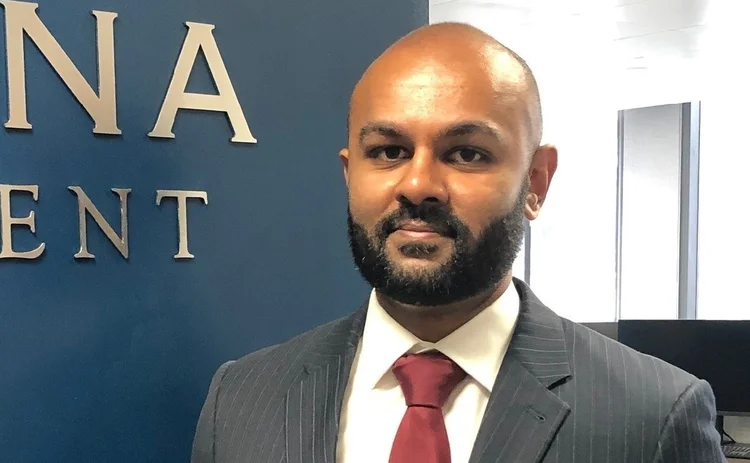
Voluntary carbon market house of the year: Tramontana Asset Management
Energy Risk Awards 2024: Investment firm sets new standards in voluntary carbon market

Interest in the voluntary carbon market (VCM) is soaring, but market credibility has been strained in recent months following reports of several projects falling short of their emissions reductions claims. The future of the VCM now depends on project developers and offtakers adopting and delivering against significantly higher standards.
One firm that stands out for the impressive lengths it has taken to ensure delivery of high-integrity carbon credits is Tramontana Asset Management, an investment firm focused on the energy transition. Over the past 18 months, Tramontana, winner of Energy Risk’s inaugural Voluntary carbon market house of the year award, has developed large-scale clean cooking and agroforestry projects across India and Sri Lanka that set new standards for quality and integrity. Over that time, Tramontana’s VCM team has grown from five to 40 full-time staff.
When Tramontana first investigated the VCM following interest shown from clients, it was disconcerted to find most projects had multiple intermediaries and “a distinct lack of ownership and accountability”, says Ram Loganathan, vice-president at Tramontana. “We quickly concluded that the only way we could ensure delivery of a high-integrity project was to take full ownership and responsibility for the entire project lifecycle,” he says.
As a result, Tramontana carries out its own research, designs each project, runs pilots, builds proprietary IT infrastructure for data collection, directly employs and trains local teams for project implementation and monitoring, completes external certification and verification under the latest methodologies, and provides extensive datasets and visualisations to its clients. Furthermore, every stage is carried out to a much higher standard than the typical project in the market. For example, during survey-based data collection, Tramontana routinely collects 10 times the quantity and breadth of data required by the major VCM certification standards to ensure project robustness and additionality.
The firm turned to improved cookstoves as a project, as they are a proven technology providing immediate positive impact to communities. Improved cookstoves are designed to use less fuel and burn more cleanly than traditional stoves, which leads to lower carbon emissions, reduced deforestation and improved health of families through minimal harmful smoke generation.
However, Tramontana was not satisfied with the quality of typical improved cookstoves that were available and so embarked on an initiative to design a bespoke cookstove for its projects which, at approximately 10 kilograms, is much sturdier than those used in other projects. The firm works closely with a local manufacturer to achieve the scale required for its 400,000 cookstoves project in India. “This is one of the largest projects in the market, so it was imperative we accounted for the manufacturer’s ability to scale,” Loganathan says.
Meanwhile, Tramontana worked tirelessly to accurately measure the emissions reductions and develop technology to monitor the ongoing impact and additionality of its projects robustly. Engagement with the local communities formed a crucial component of this.
“There were a lot of challenges as our projects work with remote communities. We had to employ and train local people to start the engagement and help educate the communities on the benefits of our projects, and of sustainability more generally,” says Loganathan.
The cookstoves, which were delivered directly to the households of each family, contain a unique serial number and QR code, which allows Tramontana to access all project data related to each stove. As well as developing an app, the firm also built a cloud platform where data is synced and stored securely. Interactive Google Earth visualisations monitor projects and help potential carbon credit purchasers gain detailed insights.
“We believe the use of this cutting-edge technology sets us apart from other projects,” says Paul Jackman, managing director at Tramontana. “We want clients to know they can rely on these credits being high quality, so it is vital the data is of the highest integrity.”
So far, the project in India has delivered around 90,000 improved cookstoves, which is currently reducing carbon emissions by around 300,000 tonnes annually, Loganathan states. Once the entire 400,000 cookstoves are in place, the project is expected to deliver more than one million tonnes of emission savings per year under the latest Verra methodology.
All Tramontana projects undergo certification by Verra or Gold Standard and are independently verified by leading globally accredited auditors. In its report, one auditor described Tramontana’s project activity as “unique and of a very high standard in comparison to related projects”. It said the project went “above and beyond [required standards] in exhibiting information transparency and traceability” adding the project’s use of technology “has marked a substantial leap in enhancing project quality and data accuracy”.
For one of its agroforestry projects, Tramontana provided farmers with free coffee and forest tree saplings along with technical support and on-ground assistance. In addition to providing them with a livelihood through coffee, planting forest trees generates additional farmer income through carbon credits as well as enhances the quality of the coffee by providing shade. “Intertwining the maintenance of trees with crop income generation keeps farmers engaged in the carbon-reduction objectives of the project,” says Loganathan.
Most recently, Tramontana became one of the first developers to operate a carbon project in Sri Lanka. “As such, we can make a life-changing impact to communities who have been most affected by the recent economic crisis,” says Loganathan.
When it comes to selling the credits from its projects, Tramontana is working with buyers that have a deep commitment to sustainability. “We want the high standards we set for our projects to continue through to the sale of the credits,” says Bharath Manium, managing director at Tramontana. “We’re encouraging potential purchasers to take some time to understand our projects, including making a site visit, because we think this will enable them to appreciate the difference between our projects and other projects out there.”
Only users who have a paid subscription or are part of a corporate subscription are able to print or copy content.
To access these options, along with all other subscription benefits, please contact info@risk.net or view our subscription options here: http://subscriptions.risk.net/subscribe
You are currently unable to print this content. Please contact info@risk.net to find out more.
You are currently unable to copy this content. Please contact info@risk.net to find out more.
Copyright Infopro Digital Limited. All rights reserved.
As outlined in our terms and conditions, https://www.infopro-digital.com/terms-and-conditions/subscriptions/ (point 2.4), printing is limited to a single copy.
If you would like to purchase additional rights please email info@risk.net
Copyright Infopro Digital Limited. All rights reserved.
You may share this content using our article tools. As outlined in our terms and conditions, https://www.infopro-digital.com/terms-and-conditions/subscriptions/ (clause 2.4), an Authorised User may only make one copy of the materials for their own personal use. You must also comply with the restrictions in clause 2.5.
If you would like to purchase additional rights please email info@risk.net
More on Commodities
Energy Risk Asia Awards 2024: The winners
Winning firms adapt to change with exemplary risk management skills
Foreign funds are bulls in China’s onshore commodity futures
Growing participation from overseas investors is boosting liquidity in what’s already a boom market
Energy Risk Software Rankings 2024: IT demands increase amid rising risk
Heightened geopolitical and credit risk increase requirements on commodities software
Energy Risk Asia Awards 2023: The winners
Winning firms demonstrate resilience and robust risk management amid testing times
ION Commodities: addressing the market’s recent pain points
Energy Risk Software Rankings winner’s interview: ION Commodities
Energy Risk Commodity Rankings 2023: adapting to new market dynamics
Winners of the 2023 Commodity Rankings provided reliability when clients faced extreme change
Energy Risk Software Rankings 2023: managing uncertainty
Unpredictable markets make CTRM software choices key
Navigating the volatility and complexity of commodity markets
Commodity markets have experienced significant challenges since the Covid-19 pandemic, the conflict in Ukraine and the subsequent sanctions imposed on Russia. These unprecedented events have caused fluctuations in supply and demand, disrupted global…








